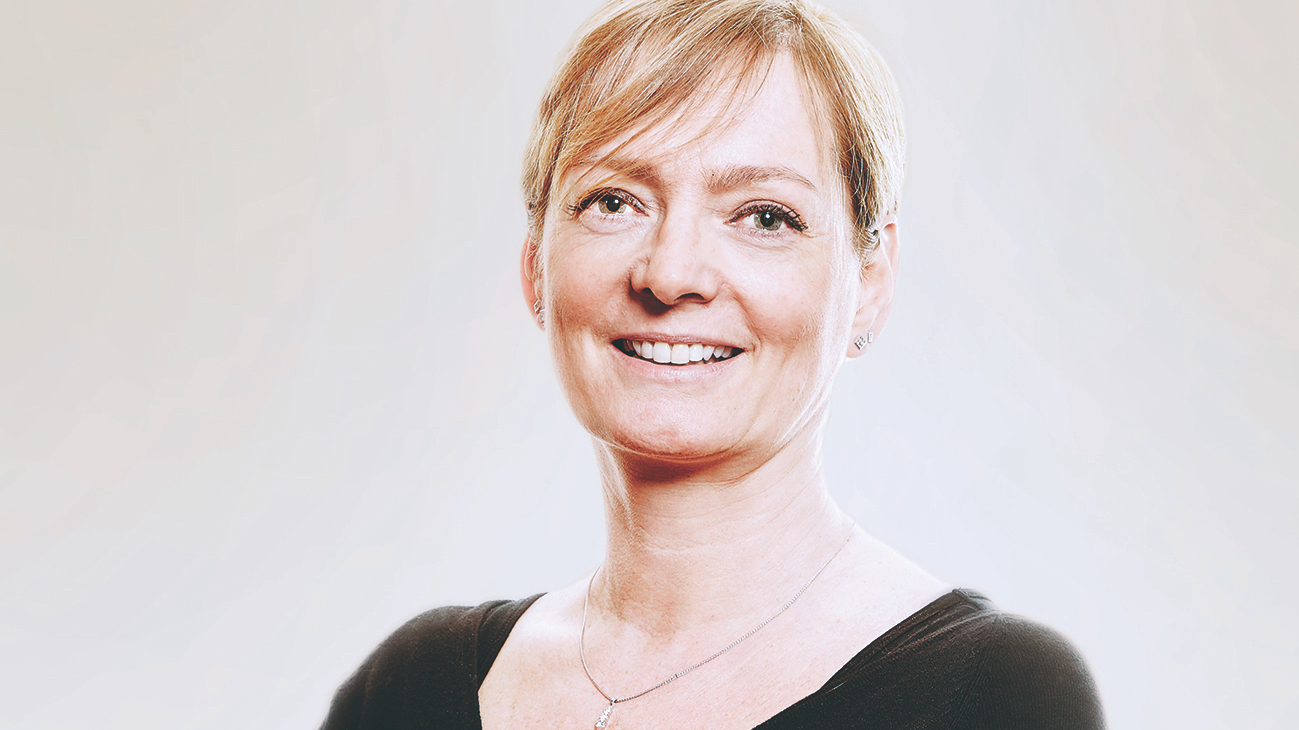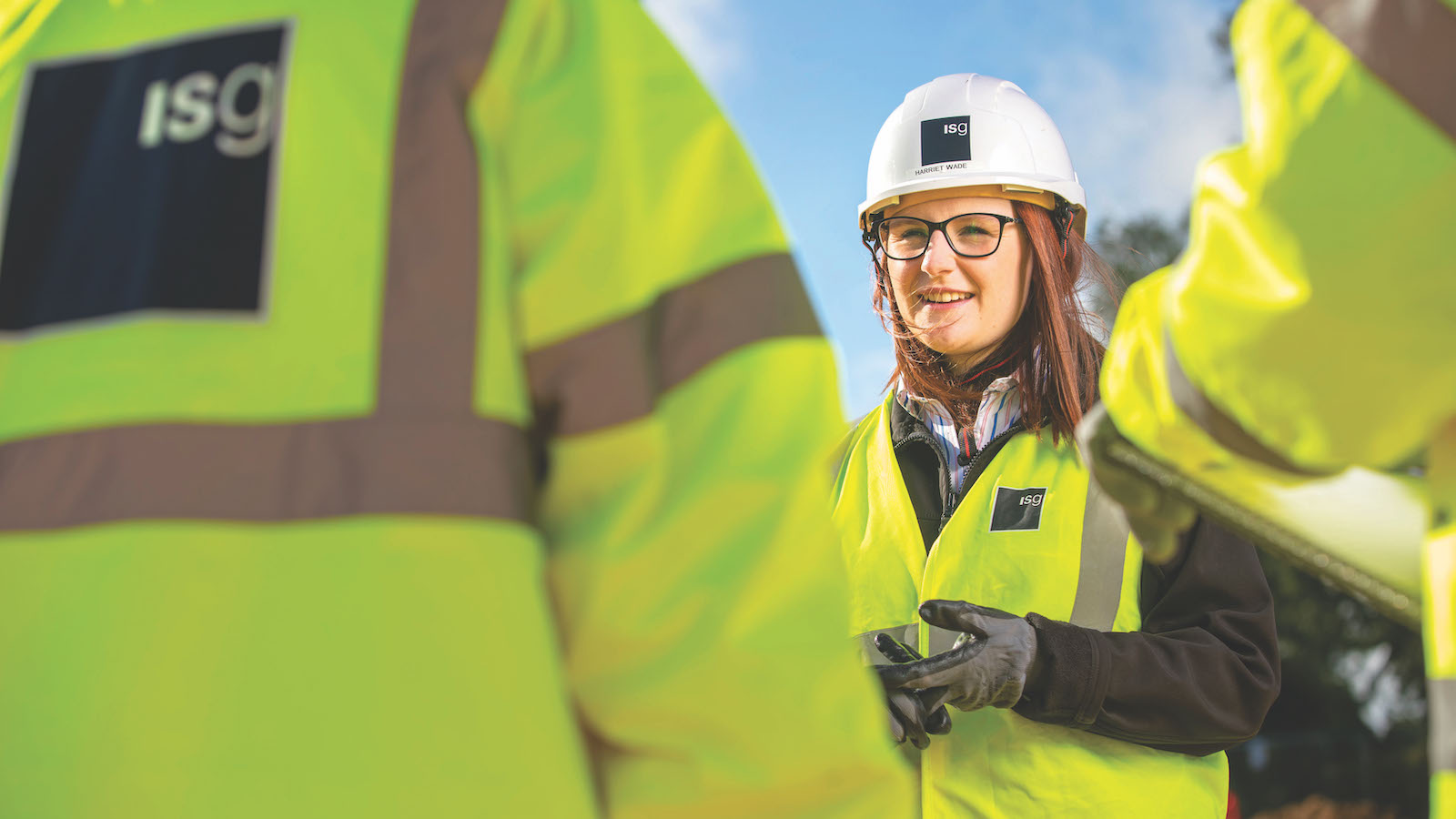With three females in the boardroom, ISG’s people strategy has a diverse perspective. CM speaks to chief HR officer Jane Falconer

What feedback do staff give you on working at ISG?
We want to offer the best employment experience and we are measuring that by partnering with Best Companies, who survey our employees. That tells us what staff think across a range of measures: how the business is led; your relationship with your manager; how you are supported and your wellbeing and how successfully we give back to society. In their last ‘b-Heard’ survey, 77% of respondents said they would recommend ISG as a great place to work and 87% were proud to work for ISG.
Best Companies has rated us a one-star employer, which is a great score, rather like having a Michelin star. By 2024, we want to be a three-star employer. So we have a target and a measure of what we’re doing.
What are your USPs as an employer?
We have a diverse portfolio of work and we’re an international business, so that means fabulous opportunities for our people to move around. One of our UK project directors is moving to become managing director of our Engineering Services business in Asia.
“Best Companies has rated us a one-star employer, which is rather like having a Michelin star”
We have a lean overhead and we are decentralised with a flat non-hierarchical structure. That means people are empowered to come up with great ideas.
Contract wins like Britishvolt – ISG will lead construction on the UK’s first battery gigaplant – give staff the chance to work on really innovative projects.
How do you develop staff?
We partnered with Willis Towers Watson to develop our capability framework and create a profiling tool and interviewing guide which helps hiring managers when they recruit. We also use this framework to help define development interventions.
This year we are focused on project leaders, developing technical and leadership skills, with internal and external coaching. Our coaches come from a variety of backgrounds, many non-construction, such as former professional athletes. This different perspective challenges paradigms. We also have mentoring built into our talent programmes, which members of our board are involved with, including CEO Paul Cossell.

How important are professional qualifications, such as CIOB membership?
Professional accreditation is incredibly important. Firstly, it provides a measure of the individual and how they are viewed by their peers, and secondly, it offers a fantastic network for them, where they can learn. We support staff financially, in terms of achieving membership, and continuing professional development.
How are you trying to boost diversity?
We have no absolute targets, but we are trying to improve each year on our organisational diversity This year, 37% of our apprentices are women and 23% of graduates, and 25% of our workforce is female. We have three women on our board, making it one of the most diverse in construction. All were promoted internally. We feel we have broader conversations with those different perspectives. There is evidence to show that more diverse businesses perform better, and all the board are committed to the journey we are on.
How do you look after staff wellbeing?
We have a partnership with Mental Health UK, voted for by our employees, and we have worked with them to deliver training to our managers. In addition, we have courses to raise awareness of mental health matters for managers, and our mental health first aiders get two days of training. The partnership includes charity work and last year we raised over £100,000 through the business.








